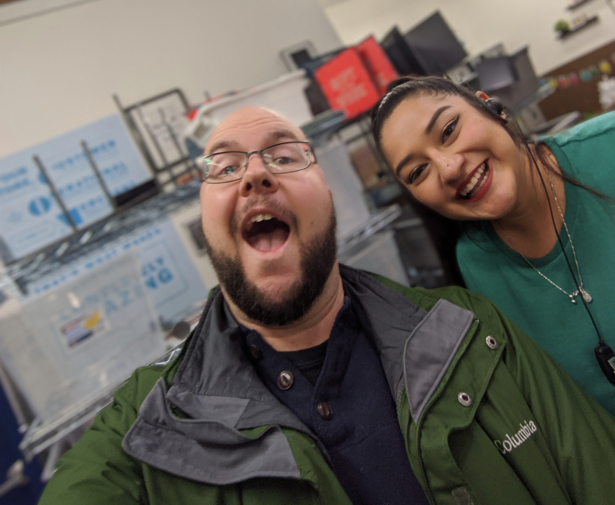
Volunteering To Keep Families Together
Why one lawyer opted for the courtroom over the board room
The subject of this week’s Good Turn—let’s call her Sarah—asked to remain anonymous because of the sensitive nature of the work she has done: helping to keep families together once they’ve become embroiled in the legal labyrinth that is family court.
Sarah hadn’t intended to return to the courtroom when she was first introduced to the Center for Family Representation (CFR), a non-profit organization that works to keep families together when they face challenges in family court. In fact, she was initially being courted as a potential board member for CFR. “I had been a Wall Street lawyer,” she told Good Turns recently. “I didn’t hate it, but it was better for me not to be on Wall Street.” When she was introduced to CFR, Sarah had been “out of the practice of law for 23 years. I had been raising my children,” she says.
But what she saw on a tour of the courtroom shocked her: a mother caught between the competing demands of medical care she needed and a government agency unable to fulfill its commitments. Because the agency couldn’t keep its appointments, the embattled mom was unable to get the care she needed, and because both were required by the court, she was in danger of losing custody of her children.
Sarah calls the situation “appalling,” but that’s not what shocked her most. “What was most disturbing to me was the behavior of the mother,” she says. “She was silent throughout the entire hearing. She was just expecting to be shat on. She never took off her coat, never looked at anybody. It was awful on so many levels.”
“I’m not saying we shouldn’t be concerned about the separation of families at the borders, but we should be equally concerned with the separation of families that’s happening in our cities”
Sarah went for lunch with CFR’s director after her tour, presumably to discuss a board seat. “But without my intending to do so, I asked if I could be a lawyer at CFR,” she reports. “I hadn’t practiced law for twenty years. I was fifty. It was ridiculous of me to make that offer, but I said, I’m not sure I could do this or be good at it, so would you give me a shot as a volunteer instead of asking me to be on the board.”
Somewhat to her surprise, Sarah’s offer was accepted—and she spent the next six years volunteering in family court.
CFR’s mandate is to keep children with their families as much as possible. “The parents in the foster care system are notoriously under-represented,” Sarah says. Mostly they are represented by young lawyers who are not specifically trained in family law, she told Good Turns, and who don’t have the support of a social worker.
“There’s a stream of conferences that take place outside the courtroom with the Administration for Children’s Services,” Sarah says. “Those conferences are not typically attended by lawyers, and a great deal of decision-making takes place inside those conferences and is then reported in the courtroom. So not having a social-work representative is a real disadvantage. Our practice was unique because it was a hybrid practice. Every client we were assigned was represented by both a social worker and a lawyer who worked together.”
Though the learning curve was steep and the work demanding, Sarah committed to the same schedule and workload that the other lawyers at CFR had to shoulder, despite the fact that she wasn’t getting paid. “It was a huge privilege,” she says. “It’s not unlike being an emergency room doctor. People are coming in with the worst thing that could ever have happened to them: their children are being taken away. They’re confused, they’re frightened. No matter what’s happened, they feel they’ve been dealt with unfairly. And the thing to remember, that most people don’t really think about, it’s abuse and neglect [that they’ve been accused of]. Abuse takes up less than 10 percent of filings, it’s almost always neglect. And neglect has a very rubbery definition. It can be failure to provide adequate supervision, it can mean a hundred million different things, including that a kid isn’t in school or you didn’t bring your kid to the hospital in time.”
“If you look at any research on family court, there is an extremely disproportionate representation of people of color in family court,” Sarah says. “But almost every parent neglects their children. There were plenty of times that I have done things that would have gotten me landed in family court, if I was subject to the same scrutiny that poor people are subjected to, and most poor people in New York are of color. They’re getting Medicaid or they’re in a homeless shelter or are getting public assistance of some sort, and they are considered suspect for those reasons, and that’s just terrible. And maybe they’re poorly educated and don’t know how to navigate the system. It’s criminal what’s going on. And I’m not saying we shouldn’t be concerned about the separation of families at the borders, but we should be equally concerned with the separation of families that’s happening in our cities.”
“Foster care is very seldom the answer to these issues,” Sarah says. “We don’t typically try hard enough to find family members or friends who will take a child. Too many times we saw a child taken and put in foster care, and not only are they not going to the same school, but the language isn’t the same at home, or the food. They’re taken away without anything, their blanket or their little bear, usually without their siblings. It really is the stuff of nightmares for a parent, it’s just horrifying.”
Even after six years of work, Sarah says she isn’t sure she helped. “I feel like I was able to watch them help themselves,” she says. “If I did any small thing, it was to confirm they mattered. I took their situation and I put it into words for the court. You can’t change things for them, but you can certainly explain their situation, and you can listen to them. We had to redefine the win, because you seldom won. For the most part they were poor black people who had to just swim upstream so fast and hard. So you had to redefine the win and not feel like you let them down all the time because you didn’t get the outcome that they wanted. So the win was, Did your client feel like you represented them with dignity? Did you call them by their name? They just get called ‘biomom’ in court. But to be called ‘Ms. Washington’ or ‘Ms. Brown,’ that’s a measure of dignity that a lot of people weren’t used to. And did they feel heard? That was a big part of the job.”
Sarah describes the difference she made as “meager,” but it was still a difference. More needs to be done, but for now we can thank her and those like her for contributing their time and effort to bringing as much dignity as they can on behalf of families everywhere.
Photo courtesy of Flickr user verkeorg
Posted July 1, 2019





